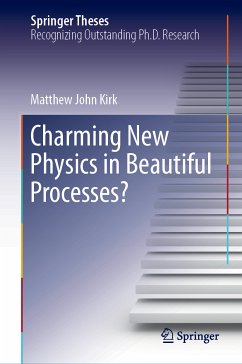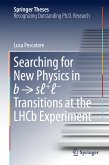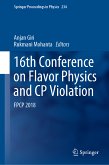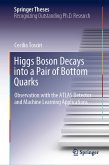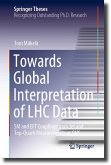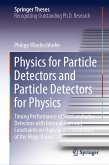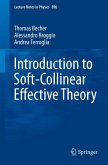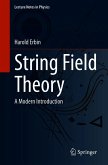This PhD thesis is dedicated to a subfield of elementary particle physics called "Flavour Physics". The Standard Model of Particle Physics (SM) has been confirmed by thousands of experimental measurements with a high precision. But the SM leaves important questions open, like what is the nature of dark matter or what is the origin of the matter-antimatter asymmetry in the Universe.
By comparing high precision Standard Model calculations with extremely precise measurements, one can find the first glimpses of the physics beyond the SM - currently we see the first hints of a potential breakdown of the SM in flavour observables. This can then be compared with purely theoretical considerations about new physics models, known as model building.
Both precision calculations and model building are extremely specialised fields and this outstanding thesis contributes significantly to both topics within the field of Flavour Physics and sheds new light on the observed anomalies.
Dieser Download kann aus rechtlichen Gründen nur mit Rechnungsadresse in A, B, BG, CY, CZ, D, DK, EW, E, FIN, F, GR, HR, H, IRL, I, LT, L, LR, M, NL, PL, P, R, S, SLO, SK ausgeliefert werden.
Es gelten unsere Allgemeinen Geschäftsbedingungen: www.buecher.de/agb
Impressum
www.buecher.de ist ein Internetauftritt der buecher.de internetstores GmbH
Geschäftsführung: Monica Sawhney | Roland Kölbl | Günter Hilger
Sitz der Gesellschaft: Batheyer Straße 115 - 117, 58099 Hagen
Postanschrift: Bürgermeister-Wegele-Str. 12, 86167 Augsburg
Amtsgericht Hagen HRB 13257
Steuernummer: 321/5800/1497
USt-IdNr: DE450055826
Bitte wählen Sie Ihr Anliegen aus.
Rechnungen
Retourenschein anfordern
Bestellstatus
Storno

